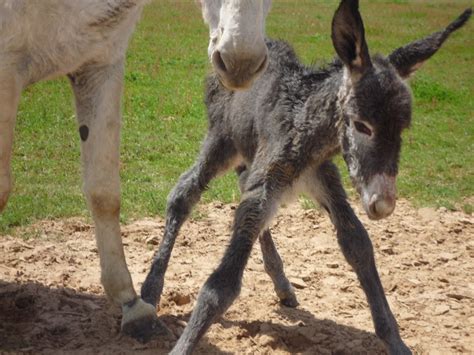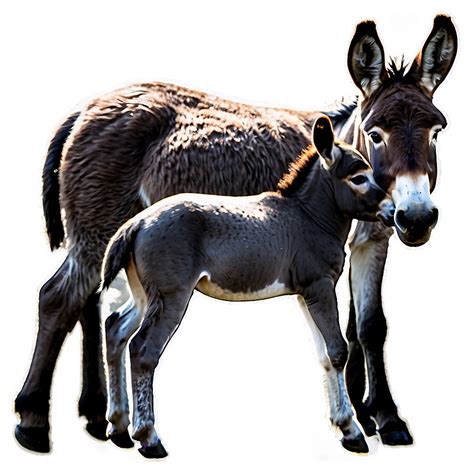
A yellow-crowned Amazon parrot named Rio is charming the internet with his comical denial after being caught red-beaked, apparently indulging in his mother’s lipstick. The parrot’s insistence on his innocence – repeatedly squawking, “I didn’t do it!” – has made him a viral sensation, showcasing the intelligence and personality of these captivating birds.
Rio’s owner, identified only as Megan, filmed the parrot’s amusing reaction and posted it on social media, quickly garnering millions of views and sparking widespread amusement. The video shows Rio perched, sporting a vibrant red beak surrounded by tell-tale smudges, while Megan gently confronts him about the lipstick. Each accusation is met with a vehement, albeit unconvincing, denial.
The video has resonated with pet owners and animal lovers alike, highlighting the unique bond between humans and their animal companions, and showcasing the surprising intelligence and communication skills that parrots possess. Rio’s antics serve as a lighthearted reminder of the joys – and occasional messes – of pet ownership.
Parrots, particularly Amazon parrots like Rio, are known for their intelligence, ability to mimic sounds and words, and their playful personalities. They require significant attention and mental stimulation, making them a rewarding, but demanding, pet.
The incident has sparked discussions about responsible pet ownership, the importance of providing appropriate enrichment for parrots, and the fascinating cognitive abilities of these remarkable birds. Rio’s “I didn’t do it!” defense has not only entertained millions but has also opened a window into the complex world of parrot behavior.
The viral video begins with Megan questioning Rio about the red marks around his beak. “Rio, what’s on your face?” she asks, according to reports. Rio immediately responds with a resolute, “I didn’t do it!” Megan then holds up a tube of lipstick, further questioning him. The parrot doubles down on his denial, repeating his assertion of innocence with increased fervor. The humorous exchange continues, with Rio’s unwavering, yet clearly disingenuous, claims drawing laughter and admiration from viewers.
Megan told sources that she had left her lipstick unattended for a brief moment, and upon returning, discovered Rio with his beak covered in the bright red cosmetic. Instead of being angry, she found the situation hilarious and decided to capture his reaction on video.
This incident underscores the importance of keeping potentially harmful substances, such as cosmetics, out of reach of pets. While Rio’s lipstick escapade was ultimately harmless, it serves as a reminder of the potential dangers that common household items can pose to animals. Many cosmetics contain ingredients that can be toxic if ingested by pets, leading to gastrointestinal upset, neurological problems, or other serious health issues.
Beyond the immediate amusement of the video, Rio’s behavior offers insight into the cognitive abilities of parrots. His ability to associate his actions with Megan’s disapproval and to formulate a verbal denial suggests a level of understanding and communication that is remarkable for a non-human animal. Parrots are known for their ability to mimic human speech, but Rio’s response goes beyond simple mimicry; it demonstrates an attempt to use language to influence the situation.
Dr. Irene Pepperberg, a renowned animal cognition scientist, conducted extensive research on parrot intelligence, particularly with her famous African grey parrot, Alex. Her work demonstrated that parrots are capable of abstract thought, problem-solving, and even basic mathematical concepts. While Rio’s antics are less formal than Pepperberg’s experiments, they nonetheless provide further evidence of the complex cognitive abilities of these birds.
The popularity of Rio’s video also reflects a broader trend of human fascination with animal behavior. Social media platforms are filled with videos of animals exhibiting human-like traits, sparking laughter, wonder, and a deeper appreciation for the animal kingdom. These videos can also serve as a valuable tool for education, raising awareness about animal welfare, conservation, and the importance of respecting all living creatures.
Furthermore, the video has amplified conversations about responsible pet ownership. Parrots are intelligent and social animals that require significant attention, mental stimulation, and specialized care. Potential parrot owners should be prepared to provide a large enclosure, a varied diet, opportunities for social interaction, and plenty of toys and activities to keep their feathered companions entertained and stimulated. Neglecting these needs can lead to behavioral problems, such as feather plucking, aggression, and excessive vocalization.
Numerous animal welfare organizations and parrot rescue groups offer resources and information for prospective parrot owners. These organizations can provide guidance on selecting the right parrot species for your lifestyle, creating a suitable environment, and addressing common behavioral issues. Adopting a parrot from a rescue organization is also a responsible choice, as it provides a loving home for a bird in need.
Rio’s viral fame has not only brought joy to millions but has also highlighted the unique intelligence and personality of parrots, prompting discussions about responsible pet ownership and the importance of understanding and respecting these remarkable creatures. His comical “I didn’t do it!” defense will likely continue to circulate online, serving as a reminder of the delightful – and sometimes mischievous – bond between humans and their animal companions.
The yellow-crowned Amazon parrot, like Rio, originates from Central and South America. They are known for their vibrant plumage, their intelligence, and their ability to mimic human speech. These parrots are long-lived, with a lifespan that can exceed 60 years in captivity, making them a significant commitment for potential owners. They require a spacious enclosure, a varied diet consisting of fresh fruits, vegetables, nuts, and seeds, and plenty of opportunities for social interaction and mental stimulation.
Yellow-crowned Amazons are social birds and thrive on interaction with their human companions. They enjoy playing with toys, learning new tricks, and participating in daily activities. Without sufficient stimulation, they can become bored and develop behavioral problems, such as feather plucking, excessive vocalization, and aggression.
Potential owners should also be aware that yellow-crowned Amazons can be quite noisy, especially during certain times of the day. They are known for their loud calls and squawks, which can be disruptive to neighbors. It is important to consider this factor before acquiring a yellow-crowned Amazon, especially if you live in an apartment or other close-quarters environment.
Despite the challenges of owning a yellow-crowned Amazon, they can be incredibly rewarding companions for those who are willing to provide the necessary care and attention. Their intelligence, personality, and ability to mimic human speech make them fascinating and entertaining pets. Rio’s viral video is a testament to the unique charm of these remarkable birds.
Beyond the entertainment value, the incident highlights the importance of understanding pet behavior and taking preventative measures to ensure their safety. Pets, especially those with inquisitive natures like parrots, can easily get into things that are potentially harmful. Keeping hazardous substances out of reach, providing appropriate toys and enrichment, and supervising pets when they are exploring their environment are all crucial aspects of responsible pet ownership.
The video of Rio has also sparked conversations about animal rights and welfare. As more people become aware of the intelligence and emotional complexity of animals, there is a growing movement to advocate for their rights and to ensure that they are treated with respect and compassion. Parrots, with their remarkable cognitive abilities, are often cited as examples of animals that deserve greater protection and consideration.
Many organizations are working to promote animal welfare and to combat animal cruelty. These organizations provide education, advocacy, and direct assistance to animals in need. Supporting these organizations is one way to make a positive difference in the lives of animals around the world.
Rio’s story is a reminder that animals are not simply pets; they are sentient beings with their own unique personalities, needs, and desires. By understanding and respecting their needs, we can create a more harmonious and compassionate world for all living creatures.
The popularity of Rio’s video also taps into the human desire for connection and companionship. In an increasingly isolated world, pets can provide a sense of purpose, unconditional love, and a connection to the natural world. The bond between humans and their animal companions is a powerful and enduring one, and Rio’s story is a testament to the joy and enrichment that pets can bring to our lives.
Furthermore, the story reminds us of the power of humor to connect people and to brighten our day. Rio’s comical denial is a lighthearted moment that has brought smiles to millions of faces. In a world often filled with negativity and stress, these moments of levity are particularly valuable.
In conclusion, Rio’s “I didn’t do it!” defense is more than just a funny video; it is a reminder of the intelligence and personality of parrots, the importance of responsible pet ownership, and the power of animals to bring joy and connection to our lives. His story is a testament to the enduring bond between humans and animals, and a reminder that even the smallest creatures can have a big impact on the world.
The enduring appeal of animal videos online points to a deep-seated human fascination with the natural world. In an era of increasing urbanization and technological advancement, many people feel disconnected from nature. Animal videos offer a vicarious connection to the wild, allowing viewers to observe and appreciate the beauty and diversity of the animal kingdom.
These videos can also serve as a gateway to further learning about animals and their habitats. Viewers who are captivated by a particular animal video may be inspired to research the species further, learn about its conservation status, and support efforts to protect its habitat.
In addition to entertainment and education, animal videos can also provide a sense of emotional support. Studies have shown that watching animal videos can reduce stress, lower blood pressure, and boost mood. This is likely due to the release of endorphins, which are natural mood boosters, in response to positive stimuli.
The popularity of animal videos is a testament to the enduring power of nature to captivate, educate, and heal. Rio’s video is just one example of the many ways that animals can enrich our lives and connect us to the natural world.
The incident serves as a practical lesson for pet owners about parrot-proofing their homes. Parrots are naturally curious and inquisitive creatures, and they will explore their environment with their beaks and feet. This can lead to them getting into things that are potentially dangerous, such as electrical cords, cleaning supplies, and medications.
Pet owners should take steps to parrot-proof their homes to minimize the risk of accidents and injuries. This includes covering electrical cords, storing cleaning supplies and medications in secure cabinets, and removing any potentially toxic plants from the parrot’s reach.
Providing parrots with plenty of safe and appropriate toys is also essential. Toys can help to keep parrots entertained and stimulated, preventing them from becoming bored and destructive. There are many different types of parrot toys available, including chew toys, foraging toys, and puzzle toys.
By taking these precautions, pet owners can create a safe and stimulating environment for their parrots, allowing them to thrive and enjoy a happy and healthy life.
Rio’s case underscores the importance of understanding the specific needs of different parrot species. While yellow-crowned Amazons are known for their intelligence and ability to mimic human speech, they also have specific dietary, environmental, and social needs that must be met in order to ensure their well-being.
Potential parrot owners should research the specific needs of the species they are interested in before acquiring a parrot. This includes learning about their dietary requirements, their environmental needs (such as temperature, humidity, and enclosure size), and their social needs (such as the need for interaction with other parrots or humans).
By understanding the specific needs of different parrot species, pet owners can provide the best possible care for their feathered companions and ensure that they live long and happy lives.
The viral video of Rio also touches on the ethical considerations of keeping parrots as pets. Parrots are intelligent and social animals that require significant care and attention. Some animal welfare advocates argue that keeping parrots in captivity is inherently unethical, as it deprives them of their natural freedom and social environment.
Others argue that keeping parrots as pets can be ethical, provided that the owners are committed to providing the birds with the best possible care and to meeting their specific needs. This includes providing a large enclosure, a varied diet, opportunities for social interaction, and plenty of mental stimulation.
Ultimately, the decision of whether or not to keep a parrot as a pet is a personal one. However, potential parrot owners should carefully consider the ethical implications of keeping these intelligent and social animals in captivity before making a decision.
Frequently Asked Questions (FAQ)
-
What kind of parrot is Rio?
Rio is a yellow-crowned Amazon parrot, a species known for its intelligence, vibrant plumage, and ability to mimic human speech. They are native to Central and South America.
-
What did Rio do that made him famous?
Rio gained internet fame after a video surfaced showing him denying that he smeared his beak with lipstick, repeatedly squawking, “I didn’t do it!” when confronted by his owner.
-
Why is it important to keep lipstick and other cosmetics away from pets?
Many cosmetics contain ingredients that can be toxic if ingested by pets. These ingredients can cause gastrointestinal upset, neurological problems, or other serious health issues. Therefore, it’s crucial to keep such items out of reach of pets.
-
What are some things to consider before getting a parrot as a pet?
Potential parrot owners should be prepared for a long-term commitment, as parrots can live for many decades. They require a spacious enclosure, a varied diet, opportunities for social interaction, and plenty of mental stimulation. Parrots can also be quite noisy and require specialized veterinary care.
-
Where can I find more information about responsible parrot ownership and adoption?
Numerous animal welfare organizations and parrot rescue groups offer resources and information for prospective parrot owners. These organizations can provide guidance on selecting the right parrot species for your lifestyle, creating a suitable environment, and addressing common behavioral issues. Adopting a parrot from a rescue organization is also a responsible choice.
Expanding Further: Deep Dive into Parrot Cognition, Care, and Conservation
The story of Rio, the lipstick-thieving parrot, is more than just a viral sensation; it’s a compelling entry point into understanding the fascinating world of parrot cognition, the demanding responsibilities of parrot care, and the critical importance of parrot conservation. Let’s delve deeper into each of these aspects.
Parrot Cognition: Beyond Mimicry
While Rio’s comedic denial centers around his ability to mimic human speech, it’s crucial to understand that parrot intelligence extends far beyond simple mimicry. Parrots possess impressive cognitive abilities, rivaling those of primates and even young children in some areas.
- Problem Solving: Parrots are adept at solving problems, often using tools to access food or manipulate their environment. Studies have shown they can understand cause and effect, and even strategize to achieve a desired outcome.
- Abstract Thought: Dr. Irene Pepperberg’s work with Alex, the African grey parrot, demonstrated that parrots can grasp abstract concepts such as color, shape, and number. Alex could identify objects based on these attributes, even when they were presented in novel combinations.
- Emotional Intelligence: Parrots exhibit a wide range of emotions, including joy, sadness, anger, and jealousy. They form strong bonds with their caregivers and can experience separation anxiety if left alone for extended periods. They also display empathy and can respond to the emotional states of others.
- Communication: Parrots use vocalizations, body language, and facial expressions to communicate with each other and with humans. They can learn to associate words with objects, actions, and concepts, and use language to express their needs and desires. Rio’s “I didn’t do it!” is a prime example of this, even if delivered with questionable sincerity.
- Spatial Reasoning: Many parrot species demonstrate excellent spatial reasoning skills, navigating complex environments and remembering the location of food sources. They can also learn to solve puzzles that require spatial manipulation.
Parrot Care: A Demanding Responsibility
The viral video of Rio might make parrot ownership seem whimsical, but it’s essential to recognize that caring for a parrot is a demanding and long-term commitment. Parrots require specialized care, and neglecting their needs can lead to physical and psychological problems.
- Enclosure: Parrots need a large and secure enclosure that provides ample space for them to move around, climb, and fly (if possible). The cage should be made of durable materials that cannot be easily damaged by the parrot’s strong beak.
- Diet: Parrots require a varied and balanced diet that consists of fresh fruits, vegetables, nuts, seeds, and a formulated parrot food. Avocados and chocolate are toxic to parrots and should be avoided. Clean water should always be available.
- Enrichment: Parrots are intelligent and active animals that need plenty of mental and physical stimulation. Providing them with a variety of toys, such as chew toys, foraging toys, and puzzle toys, is essential. Rotate the toys regularly to keep them engaged.
- Socialization: Parrots are social animals and need interaction with their human companions or with other parrots. Spend time talking to your parrot, playing with them, and training them. If you work long hours or travel frequently, consider getting a companion parrot for your bird.
- Veterinary Care: Parrots require regular veterinary checkups to ensure they are healthy. Find a veterinarian who specializes in avian medicine. Be prepared to address potential health problems, such as feather plucking, psittacosis, and avian flu.
- Environment: Parrots thrive in a stable environment. Sudden changes such as new pets or frequent visitors can cause them stress.
Parrot Conservation: Facing Extinction Threats
Many parrot species are facing significant threats to their survival in the wild, including habitat loss, poaching, and the illegal pet trade. Conservation efforts are crucial to protect these remarkable birds and ensure their long-term survival.
- Habitat Loss: Deforestation, agriculture, and urbanization are destroying parrot habitats around the world. Protecting and restoring parrot habitats is essential for their survival.
- Poaching: Parrots are often poached for their feathers, meat, and eggs. Enforcing anti-poaching laws and educating local communities about the importance of parrot conservation can help to reduce poaching.
- Illegal Pet Trade: The illegal pet trade is a major threat to parrot populations. Many parrots are captured from the wild and sold as pets, often under inhumane conditions. Supporting responsible breeding programs and discouraging the purchase of wild-caught parrots can help to combat the illegal pet trade.
- Climate Change: Climate change is altering parrot habitats and affecting their food sources. Reducing greenhouse gas emissions and mitigating the effects of climate change can help to protect parrot populations.
- Conservation Organizations: Numerous organizations are working to protect parrots and their habitats. Supporting these organizations through donations or volunteering can make a positive difference.
- Responsible Pet Ownership: By providing appropriate care for captive parrots, we can help to reduce the demand for wild-caught birds. Educating others about responsible parrot ownership can also help to promote parrot conservation.
The story of Rio, while entertaining, serves as a crucial reminder of the complexities and responsibilities associated with parrot ownership, and the broader need to protect these intelligent and fascinating creatures in the wild. By understanding parrot cognition, providing appropriate care, and supporting conservation efforts, we can ensure that these remarkable birds continue to thrive for generations to come.









